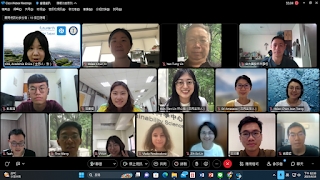〖┃Circular Economy〗— ❐ S2-1 Understanding access-based business models for sustainability based on life cycle thinking
Nowadays, consumer products are increasingly available for #access-based business models, such as renting, leasing, and sharing. These models have a potential to drive sustainable consumption through meeting consumer needs with fewer artifacts; however, past studies presented mixed results depending on what – the #type of product – is being accessed under which business model.▸▸▸This presentation will introduce the research activities around this topic, including #typology development of consumption-production patterns, consumer acceptance analysis through #laundromats in Tokyo and Bangkok, and a design of #fashion rental platforms.
Activity Goals aligned with SDGs Projects

Goal
Science Cultivation、Public Engagement、International Connections
Type of event
Seminar/Forum/Lecture
Organizer
ECR working group
Future Earth Taipei - Future Earth Taipei Hub - IYBSSDXTAIWAN - 中央研究院 永續科學中心 Center for Sustainability Science
Academia Sinica
Event Audience
#Promote green economy #Ensure sustainable consumption and production patterns
Contact
Telephone Number
27872536
dolly0105@gate.sinica.edu.tw
Result
This seminar, an expert in the University of Tokyo, an environmental assessment and a professor in the areas of environmental assessment and sustainability. The content covers the circular economy and sustainable business model. At the beginning of the speech, Dr. Amasawa talked about the diversity of product consumption and its impact on the environment. Then, she introduced the life cycle assessment as a tool for quantitative products and service environment. The focus of her main speech is how to apply the life cycle assessment in the increasingly popular system in the sharing economy.The content of this online seminar is rich and inspiring. During the seminar, Dr. AMASAWA explored the impact of consumer models on the environment and the necessity of sustainable business models in detail.She emphasized the importance of life cycle assessment as a tool for evaluating products and service sustainability. She deeply explained the concept of life cycle assessment and her importance in assessing products and service sustainability.Then, Dr. AMASAWA focused on the increasingly popular system in the sharing economy. She explained how to apply the life cycle assessment in these systems and emphasize the benefits of using this method.In general, this online seminar provides valuable insights, clarifying the importance of the circular economy and sustainable business model, and how to use the life cycle evaluation Influence.
Number of Participants34人
Featured events
Contact Us
- Tel: 02-7749-6818
- Email: iybssdtw@gmail.com
Adviser

自然科學及永續研究發展處
Organizer
國立臺灣師範大學科學教育研究所、自然科學及永續研究推展中心、國立成功大學材料科學及工程學系、台灣物理學會、中國化學會
Co-organizer
中央研究院永續科學中心、中原大學物理學系、中華民國數學會、行政院原子能委員會、財團法人國家實驗研究院國家高速網路與計算中心、財團法人國家衛生研究院、高雄市政府教育局、國立中央大學科學教育中心、國立中正大學科學教育中心、國立成功大學科學教育中心、國立自然科學博物館、國立東華大學科學教育中心、國立科學工藝博物館、國立海洋生物博物館、國立海洋科技博物館、國立高雄大學科學教育中心、國立高雄師範大學、國立清華大學跨領域科學教育中心、國立彰化師範大學、國立臺灣大學科學教育發展中心、國立臺灣科學教育館、國家衛生研究院、淡江大學科學教育中心、逢甲大學綠能科技暨生技產業發展研究中心、臺北市政府教育局、臺灣永續棧、臺灣海洋聯盟、臺灣港務股份有限公司




